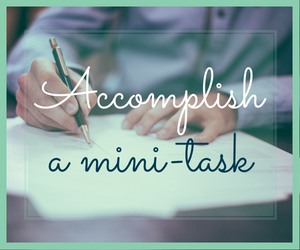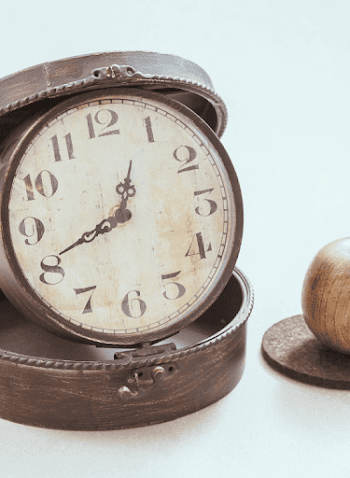Does summer have you avoiding or missing out on genealogy? It might be the weather or maybe it's your summer schedule. No matter the reason, summer can either be a great time to accomplish some genealogy or a genealogical waste-land (that you often don't even understand).

Here are some ideas to shake up your summer genealogy routine.
Dig for Gold

I have never been normal, so as a child, I was always planning what I'd learn over the summer (one year it was hieroglyphics, sadly that turned out to be harder than I expected---at the age of 8). That means summer makes me want to work in "outside the box" research collections. Just as I wanted to learn something beyond the schoolroom as a child, I want to find odd, genealogically-relevant collections during my grown-up summers.
A great example is finding aids or other online "helps" for academic collections or manuscript collections. These are not quick and easy to find or use but that makes them perfect for slow summer perusal.
I can't tell you how excited I was when I learned about NUCMC. Today, digital options have replaced it (and it was always an issue if it was fully updated to include that rare collection that included your family, digital cataloging stays up to date such better). You might work at a repository that has the old published NUCMC catalogs, those are actually really fun to go through---if you have the time.
More likely you simply need to try a Google search and focus on manuscript/academic collections or use a specific online search strategy where you only search a finding aid (see the comment at the end of this post and also check out this post about finding aids vs. library catalogs).
So which do you try, general search or targetted? Like most of genealogy, it depends on you and your project. My family is fairly poor (historically) and uneducated (that means mostly illiterate). So, I'm usually not going to find diaries and family papers. However, that doesn't apply to every single person so it's possible I'd come across something but I don't have a targetted location to start.
If you have family involved with an academic or religious group, try the archives for that institution/group. This can apply to any group a family member was involved in but smaller groups may not have preserved their papers (if your family participated with a large group, definitely look into where the papers are stored---this is actually one of those general online searches but you're focused on the group instead of your family).
If you think there is a chance family papers could be in a repository but you have no idea which one, you can try Googling it. The first step is trying various searches to create one that starts to hone in on what you're looking for. The more common the surname (including if it is a common word, even if it's an uncommon surname), the longer this first step will take.
To perform a general search where you're looking for finding aids and its unlikely the surname is mentioned, you may need to think about how your family could be cataloged. Check out the post about finding aids to learn more. This is the situation I'm usually in. I try locations or topics and I'm mainly looking for repositories that have collections. I will go back and target search those repositories once I identify them.
Hit the Beach Library

Beat the summer heat with a trip to your local library. Your library doesn't have to have research collections relevant to your geographic areas. Your goal is to shake things up and get thinking outside your (currently not so productive) box.
A trip to a relevant repository would be great but you're not doing that now, so simplify and hit your closest library or genealogical collection.
If there aren't relevant collections, check the library catalog. First, make sure you haven't overlooked something that is relevant. If that doesn't work, look for inspiration.
It could be how-to guides (which might be all you find at your local library that doesn't have a genealogy room). It might be a non-fiction book about your general research interest or a similar research interest (example, I'm a southern specialist, Carolyn Billingsley's Communities of Kinship isn't about my family but is about families very much like mine---great genealogical inspiration).
Don't ignore information you consider too basic, this is a good time to have a refresher if that's all that is available. Remember, we're shaking things up.
Take a Trip

[Look for virtual experiences that have become available during the pandemic. You might be able to virtually visit an ancestral site. No one knows if these virtual options will remain available so take advantage of them now!]
Consider visiting a living history museum/historic site. Whatever type is available to you. These always make me think about genealogy and life in the past, no matter when or where they represent.
Even while we continue to consider COVID, many living history museums and historic sites are outside making them a good option if you're willing to travel/get out and about but are just being cautious.
You don't have to visit an ancestral location to get advantages from a living history museum or historic site. This option can work just as well if you visit whatever is nearby. Just take your brain and think about the time period in relation to your family.
Enjoy Nature

I'm using this suggestion right now. For once it's not 1000 degrees and 500% humidity which means peace and quiet are found outside. If being in the weather isn't agreeable, try and find someplace near a large window and just relax and think (you can call this brainstorming or daydreaming).
The window doesn't have to be at home (I don't have any that fit the bill). Consider a coffee shop, library, or any place with a comfortable seat (not backless benches) where you won't be runoff.
You'll want a notebook or computer handy so when your brain starts to relax, and produce great ideas again, you can capture them. Internet is not required (but you might want a back-up plan if your ideas are great and you need to get to an Internet connection to act on some of them).
Don't try and force certain ideas to come. The point is to overcome any genealogy-block you may have been experiencing due to a change in schedule (or even just because you've been too hot to think straight).
Create Non-research Mini-tasks

When I'm really busy, I find trying to take on "large" projects feels absolutely overwhelming. This includes when it's hot and I just don't want to do as much or work as fast (there's a reason southerners got a reputation for being slow, what idiot wants to rush around in this humidity?).
A good solution to this overwhelming feeling is accomplishing something. Consider focusing on creating a research plan, correlating a small selection of records, or writing ONE analysis.
All of these should be relatively small tasks. You may need to pick a research subject you haven't worked on much or that is very organized, though. All of these small tasks start with existing research and if that has to be organized first, you don't have a small project.
If you think a research plan, correlation, or analysis is NOT a small project, start by learning more (about one of these). The average genealogist tends to think research plans, in particular, are far more involved than they really are.
So there are five suggestions to find summer genealogy inspiration and break out of your rut.
Do you have any favorite summer-time genealogy tasks? Leave a comment.










